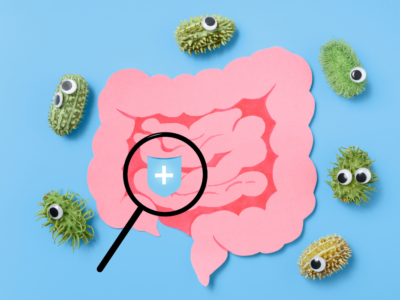ICYMI, October is Breast Cancer Awareness month. Did you know that breast cancer is the most common cancer in women in the US? There is a 1 in 8 chance to develop breast cancer in women and 1 in 833 for men. Yes, men can get breast cancer too. While we all hate talking about the “c” word and love our boobies – big, small or two different sizes…it’s important to have an open conversation about the signs to look out for and how you can prevent it.
Let’s start with understanding who is at risk:
- If you have close relatives who have been diagnosed with breast cancer before. Normally this is your grandparent, mother, sibling or child.
- Strong family history of cancer or inherited genetic mutation linked to breast cancer. You can get tested for BRCA1 or BRCA2 gene mutation to understand your risk level.
- You may have dense breasts. This means they have more fibrous and glandular tissue instead of fatty tissue.
- If you are a 55+ year old woman, your chances are automatically higher. However, that doesn’t mean you can’t develop it at a younger age.
You may be asking yourself, what even is a BRCA gene? For starters, every woman has a BRCA1 and BRCA2 gene. If cells quickly divide and change rapidly, it can lead to cancer. Even though the mutation can be rare, your healthcare provider may recommend you to get BRCA tested if:
- A relative has been diagnosed with a BRCA mutation
- One or more of your family member have had breast cancer
- You have a person history of breast cancer, especially before the age of 50
- Your ancestors are Ashkenazi Jewish
- A personal or family history of multiple cancer diagnoses
- Family history of inherited cancer predisposition disorder
If you meet any of these risk factors, and even if you don’t, here’s what you can do to look out for changes in your body and prevent your chances of developing breast cancer:
It’s important to familiarize yourself with your breasts at least once a month to understand if you have any lumps (no matter what size), tender nipples, pain in your breast or under your armpit, nipple discharge, changes in size or shape or cracked or dry nipples without breastfeeding.
Monitor your body.
If you have swollen lymph nodes under your arm or around your collarbone, this could be a sign of breast cancer. Lumps can feel soft, rubbery or hard and most people describe it like the shape of a ball.
Go in for regular check ups.
Your doctor can always help identify anything unusual, especially if you go at least once a year. If you are a 40+ year old woman, you should be getting annual breast exams and a mammogram screening.
Don’t ignore the symptoms.
Don’t wait for any size or severity of symptoms to get checked out. The earlier breast cancer can be detected, the better it can be successfully treated. If you’re not sure or you have even 1% of concern, you should make an appointment immediately with your doctor.
Make healthy lifestyle choices.
While this goes for just about everything in life, reducing alcohol and smoke intake will decrease your chances of developing breast cancer. Staying active at least two days a week can also positively impact your life.
Breastfeed, if you are able to.
Women who breastfeed experience hormonal changes during lactation which reduces their lifetime exposure to hormones such as estrogen, which can promote breast cancer cell growth.
Resources:
https://www.cancer.org/cancer/breast-cancer/about/how-common-is-breast-cancer.html



